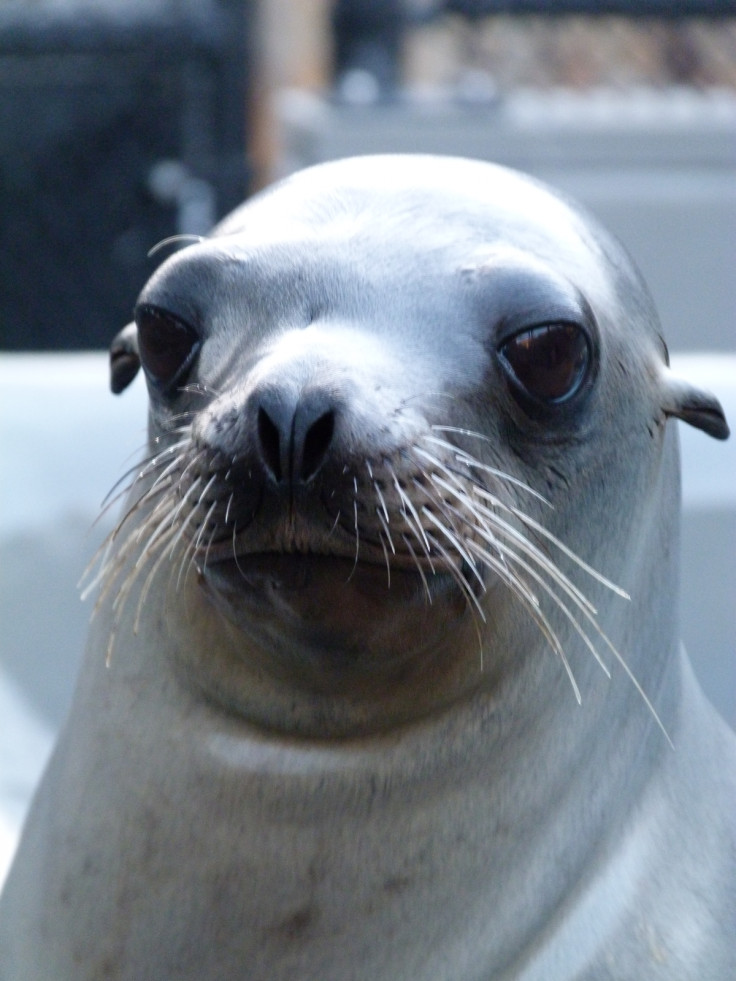School Daze the sea lion rescued after trying to cross California highway

A sea lion pup who has been in animal rehab before ended up near a highway in the San Francisco Bay of California on 4 April.
The pup, nicknamed School Daze the last time he was picked up by the Marine Mammal Center in Sausalito and nursed back to health, was hungry and disoriented, said rescuers. He is one of 80 stranded sea lion pups already picked up this season by the Mammal Center, which has dealt with a record number of the young animals for four years running.
Experts chalk up the count to global warming and vanishing fish populations. They believe the fish have headed deeper into the sea to follow the colder water away from the warming coast. The nursing pups' mothers spend too long away hunting for the far-flung food, leaving them to starve until the desperate young strike out too soon on their own.
This year pup weights appear to be at a historic low, with nine-month-old pups not much bigger than three-month olds.
But a new element the last two years is a toxic algae bloom in the Pacific, which, if ingested by the sea lions can cause brain damage, leaving the animals confused and disoriented. Many scientists believe the warming waters are fueling the spread of the toxin as the bloom seems to be expanding with areas of a hotter sea.
Mammal centre scientists fear that School Daze may have eaten the domoic acid toxin hunting in the ocean or ingested it in his mother's womb. He was released in January at the more remote Farallon Islands, but has been spotted several times recently closer to San Francisco even skinnier than usual.
He will undergo a thorough physical exam and an MRI to determine if he has suffered brain damage. Scientists are worried now that the relentless sea lion starvation years are beginning to have a serious impact on the once-mighty Pacific population.
"After four years of sea lions in crisis, the initial shock of seeing so many starving sea lions is over and now we're really starting to worry about long-term impacts on the population as a whole," said Dr Shawn Johnson, director of Veterinary Science at the Center.
© Copyright IBTimes 2025. All rights reserved.






















